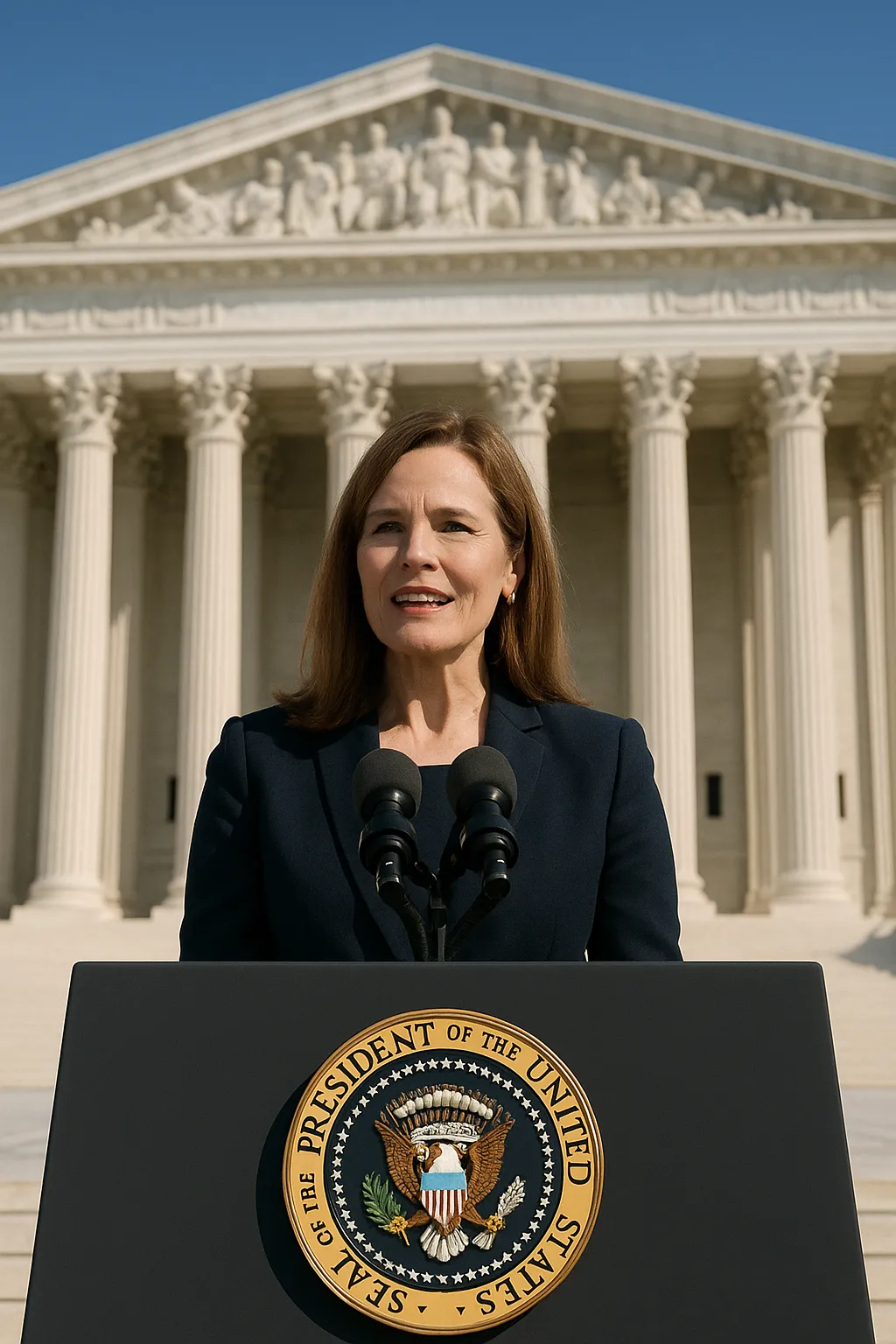Barrett Urges End to Threats, Defends Court’s Role in Series of Interviews

Supreme Court Justice Amy Coney Barrett called on September 8 for an end to threats against judges and defended the court’s decisions and her new memoir in multiple interviews in Washington and New York. Barrett emphasized that violence should not be a cost of public service and rejected the notion of a constitutional crisis as she promoted her book.
Barrett’s Message and Memoir In an interview with The Associated Press, Barrett discussed her forthcoming memoir, Listening to the Law: Reflections on the Court and Constitution, stressing that “violence or threats of violence” against judges must not accompany public service and expressing concern over political polarization spilling into threats against the judiciary. She explained that her aim in writing was to demystify the Supreme Court’s work for the general public.
Limited Focus on Trump Barrett noted that references to former President Donald Trump in her book are scarce and primarily related to her nomination and confirmation, underscoring her intent to maintain judicial independence and historical perspective rather than political commentary.
Rejection of Constitutional Crisis Speaking at New York’s Lincoln Center with journalist Bari Weiss, Barrett dismissed reports of a constitutional crisis, asserting that the rule of law remains intact and that federal courts continue to function effectively despite tensions over executive actions and emergency rulings.
Defense of Dobbs Decision In her first televised interview in years on CBS News, Barrett defended the Supreme Court’s 2022 decision overturning Roe v. Wade, clarifying that the Dobbs ruling shifted regulatory authority over abortion to the states rather than banning abortion outright. She argued that constitutional adjudication of medical decisions is best determined through the democratic process.
Security and Personal Reflections Barrett, the youngest justice on the bench, reflected on how heightened security measures have altered her personal freedom since joining the court in 2020. She recounted lighthearted moments, such as dancing briefly at a family wedding, but acknowledged the ever-present reality of protection protocols.
Subheadings:
- Memoir aims to clarify courtwork
- Sparse mentions of Trump underscore judicial neutrality
- Rule of law “alive and well,” Barrett insists
- CBS interview revisits Dobbs and state authority
- Personal life shaped by constant security
Bullet Points:
- Barrett’s AP interview highlights threats facing judiciary
- New memoir published September 9 explains court’s inner workings
- Barrett rejects idea of constitutional crisis at Lincoln Center
- Defends Dobbs decision as returning power to states
- Reflects on changes to personal life due to security arrangements
Categories
Autos and vehicles Beauty and fashion Business and finance Climate Entertainment Food and drink Games Health Hobbies and leisure Jobs and education Law and government Other Politics Science Shopping Sports Technology Travel and transportationRecent Posts
Tags
Archives
08/19/2025 (3) 08/20/2025 (40) 08/21/2025 (27) 08/22/2025 (22) 08/23/2025 (4) 08/24/2025 (21) 08/25/2025 (30) 08/26/2025 (24) 08/27/2025 (29) 08/28/2025 (16) 08/29/2025 (9) 08/30/2025 (13) 08/31/2025 (17) 09/01/2025 (167) 09/02/2025 (124) 09/03/2025 (149) 09/04/2025 (112) 09/05/2025 (72) 09/06/2025 (169) 09/07/2025 (162) 09/08/2025 (150) 09/09/2025 (176) 09/10/2025 (194) 09/11/2025 (194) 09/12/2025 (186) 09/13/2025 (207) 09/14/2025 (159) 09/15/2025 (175) 09/16/2025 (198) 09/17/2025 (196) 09/18/2025 (196) 09/19/2025 (207) 09/20/2025 (129) 09/21/2025 (4)